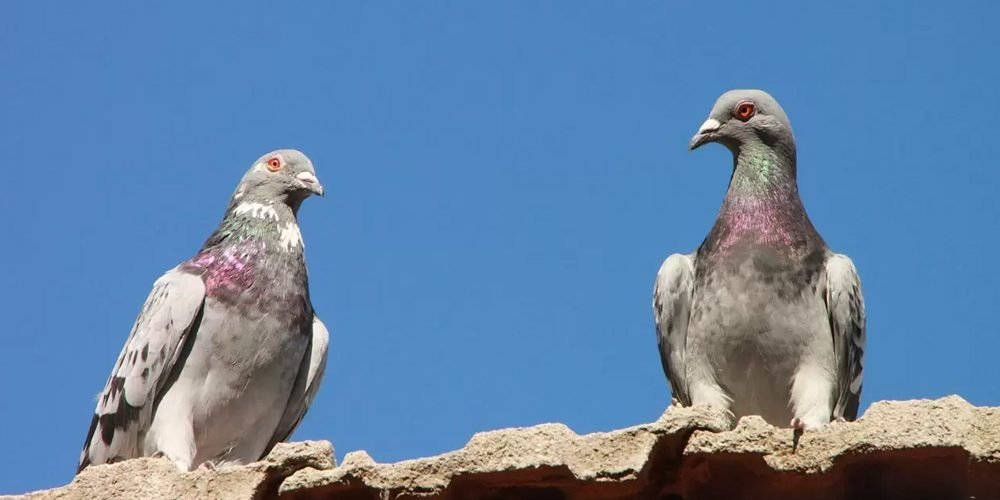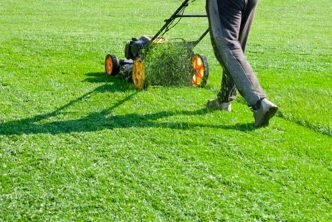You may enjoy having pigeons in your garden, but the problem is that the population will just keep growing and growing. Pigeons usually produce two eggs in a clutch, and this happens about six times a year. If they are born in your garden, this is where they will stay. They don’t migrate and never move far from where they are born. Before you realize it, your garden may be overrun with pigeons. Keeping them at bay may require using more than one strategy.
Table of Contents
Use pigeon birth control
Getting rid of pigeons in gardens usually involves using a combination of solutions. Physical exclusion solutions etc., won’t reduce your pigeon population. For that, you will need OvoControl’s pigeon control program. The OvoControl method uses contraceptive bait that prevents eggs from hatching. An automatic feeder releases pellets every day. When the female pigeons eat them, they will still mate and produce eggs, but the eggs won’t hatch. This will halve your pigeon population in a year and deal with it completely over time.
Make it hard for them to nest
Pigeons need safe places to nest, so you need to make areas where they tend to nest inhospitable. Destroying nests isn’t effective because they will simply build new nests.
Physical exclusion methods like using bird netting can be costly, but it is an effective way to prevent pigeons from nesting in areas like the eaves of your roof. Bird netting is usually installed by professionals.
You can also install spike strips on spots where they like to land and bird slopes on areas like ledges and window sills. A shock track system that gives pigeons a mild shock can keep them off perching areas.
Reduce their access to food and water
Pigeons need access to food and water. Getting rid of as many sources of food and water as possible will make a difference.
- Make sure you keep pet food indoors.
- Seal your garbage cans well.
- Avoid having bird feeders in your garden. The pigeons will scare off other little birds and take as much food as they can get.
- Make sure you don’t have dripping taps.
- Cover any ponds in your garden with nets.
Scare them away with decoys
You can try to scare pigeons away by using decoy birds of prey, like raptors. A good old-fashioned scarecrow with the silhouette of a hawk is another option. Some of the decoys available in shops today are quite realistic and even have moving parts. They are more effective than ones that don’t move. However, pigeons do not take long to realize that a decoy doesn’t pose a threat. If you keep moving your decoys around, they may be more effective.
Use ultrasonic emitters
Humans can’t hear the sounds that ultrasonic transmitters make, but pigeons can. These devices are usually battery or solar-powered. You don’t need electricity for them to work so you can use them in your garden. The devices emit noises that deter pigeons, such as those of a bird in distress or sounds a predator will make. Ultrasonic emitters have a limited range, so you may need more than one if you have a large garden. Pigeons can also acclimatize to the sounds over time, and they will start to work less well.
Try reflective objects
Adorning your garden with shiny, reflective objects could temporarily affect the eyesight of pigeons and deter them from nesting in your garden. Pigeons are sensitive to flashes of light. Any object that shines and spins can work. Aluminum strips, small mirrors, CDs on a string etc. Again, pigeons can become used to these objects quite quickly. You may also find it aesthetically displeasing to have all these shiny objects in your garden.
What you shouldn’t do to deal with the problem
If you try to shoot the pigeons, you may temporarily reduce the population, but the problem is that they breed prolifically. It won’t be long before the population increases again. Trying to trap them and release them elsewhere is not effective either. They have an innate homing instinct and will just find their way back. Killing, trapping or resorting to poisons is not considered a humane way to deal with pigeons and comes with a number of risks.
Conclusion
Many methods work temporarily, and some even work for a long period. However, the only method that reduces the number of pigeons in your garden is pigeon birth control. It’s a humane and effective solution for getting rid of pigeons in your garden. You should experience a 50% decrease in your pigeon population within a year and no longer have a problem at all after the second year. If you use it together with other methods, you can have an immediate and long-term solution to your pigeon problem.





